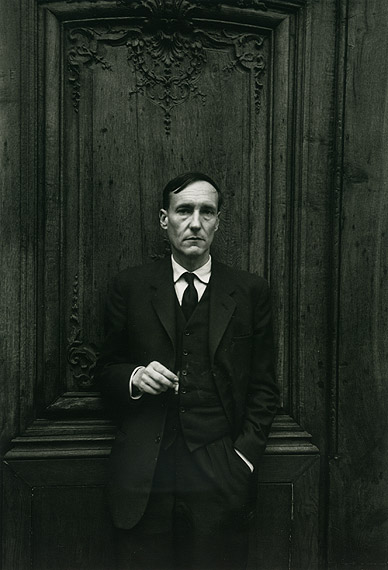From J. G. Ballard's
A User's Guide to the Millenium: Essays and Reviews:
'In Finnegans Wake, a gigantic glutinous pun, James Joyce brought the novel up to date, circa 1940, with his vast cyclical dream-rebus of a Dublin physician who is simultaneously Adam, Napoleon and the heroes of a thousand mythologies. William Burroughs takes up from here, and his fiction constitutes the first portrait of the inner landscape of the post-war world, using its own language and manipulative techniques, its own fantasies and nightmares [...]
'Whatever his reservations about some aspects of the mid-twentieth century, Burroughs accepts that it can be fully described only in terms of its own language, idioms and verbal lore. Dozens of different argots are now in common currency; most people speak at least three or four separate languages, and a verbal relativity exists as important as any of time and space. To use stylistic conventions of the traditional oral novel - the sequential narrative, characters 'in the round', consecutive events, balloons of dialogue attached to 'he said' and 'she said' - is to perpetuate a set of conventions ideally suited to a period of great tales of adventure in the Conradian mode, or to an over-formalized Jamesian society, but now valuable for little more than the bedtime story and the fable [...]
'In turn, Burroughs's three novels are a comprehensive vision of the individual imagination's relationship to society at large (Naked Lunch), to sex (The Soft Machine), and to time and space (The Ticket that Exploded). [...]
'Burroughs also illustrates that the whole of science fiction's imaginary universe has long been absorbed into the general consciousness and that most of its ideas are now valid only in a kind of marginal spoofing. Indeed, I seriously doubt whether science fiction is any longer the most important source of new ideas in the very medium it originally created.
'However, Burroughs contribution to science fiction is only a minor aspect of his achievement. In his trilogy, William Burroughs has fashioned from our dreams and nightmares the authentic mythology of the age of Cape Canaveral, Hiroshima and Belsen. His novels are the terminal documents of the mid-twentieth century, scrabrous and scarifying, a progress report from an inmate in the cosmic madhouse.'
J. G. Ballard, 'Mythmaker of the Twentieth Century'
New Worlds
1964



